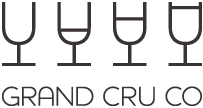- Details
- Written by Henry Conway
- Category: News
- Hits: 1681
Although wine remains our specialty, here at Grand Cru we are fans of all great quality drinks !
That's why, by securing few parcels of great beer from Elephant School Brewing, a vibrant Brewery based in Essex, we made our very first step into the exciting world of craft beers.
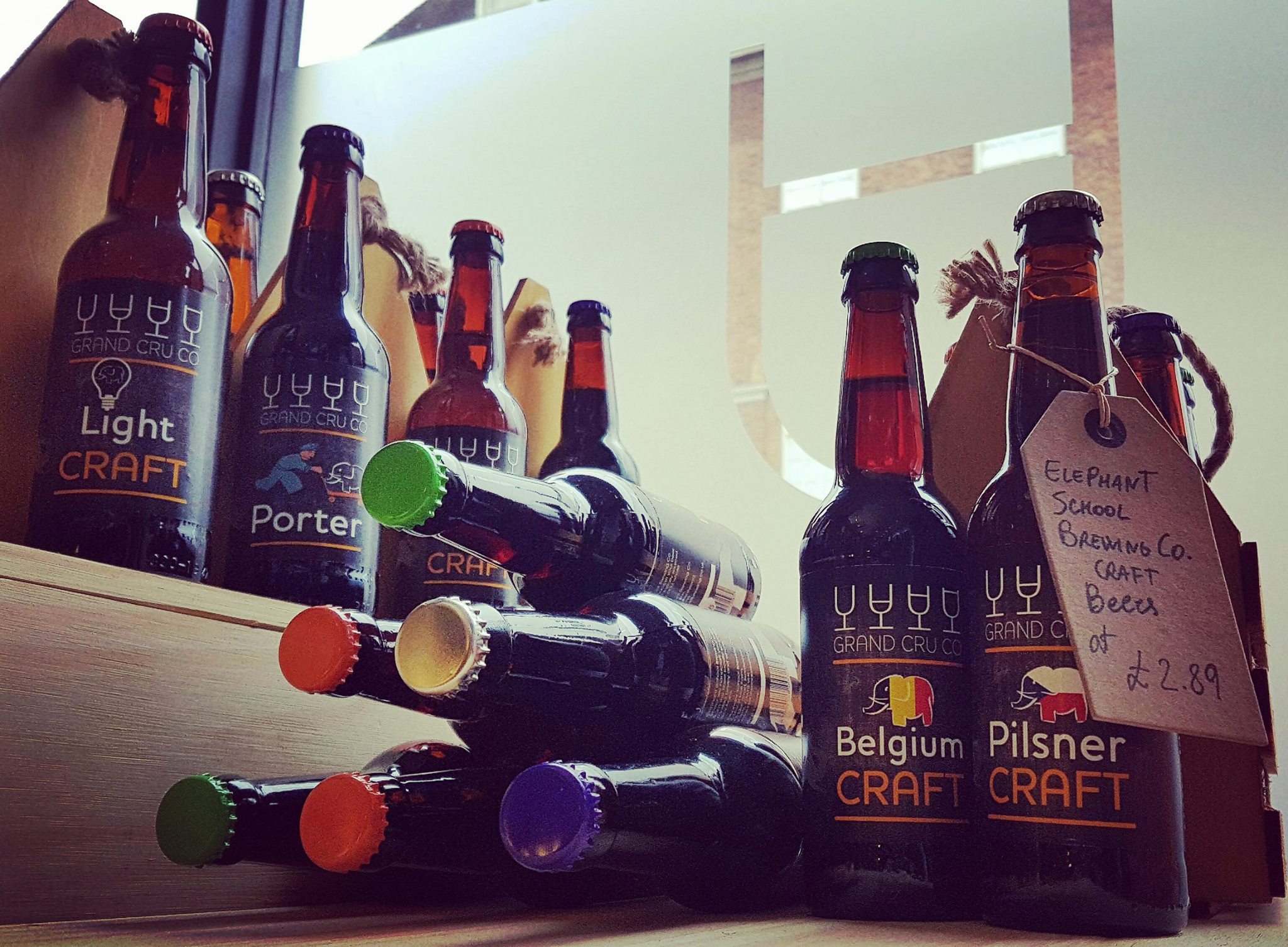
From the moment we first tried them, we just fell in love ! Refreshing and easy to drink, yet complex and intriguing, these beers are far away from the usual (and boring!) industrial products you can find everywhere.
Let us introduce you to these brewing wonders !
Pilsner Craft
For the more traditional ‘lager’ lovers the Pilsner craft is a bright and refreshing one.This beer is crushable, always begging for another sip and pairs well with sushi, outdoor grilling, spicy Thai and Mexican dishes.
Light Craft
With its burst of passion fruit and hint of mint, Sombrero starts a fiesta in your mouth that you won’t want to stop. Tipping its wide brimmed hat to its European saison roots, its flavour transports you to Mexico for a party that lasts to the bottom of your glass.
Belgium Craft
A glorious embellishment of flavours brought together in this collaboration of styles from Belgium and Great Britain. The honeyed sweetness of the figs wrapped around the spicy, piney tang of the rosemary combine perfectly with the eccentricities of the Belgian yeast.
Porter
For a taste that will have you singing in the rain, this rich porter showers your tastebuds with waves of chocolate…fruity and bitter with successive sips. Porter in a Storm is one to pour down your throat if you’re caught in a downpour or any time you want a great beer.
Come and try them ! They are only £2.89 each … and as INTRODUCTORY OFFER, when you buy a 12btls case, you get a rather tasty 20% discount !
www.grandcruco.com
www.elephantschoolbrewing.com
Cheers !
- Details
- Written by Henry Conway
- Category: News
- Hits: 1501
With spring knocking at our door is now time to opt for lighter and refreshing reds as well as dry, crisp and aromatic whites.
Try our Martín Códax Albariño at £12.95 !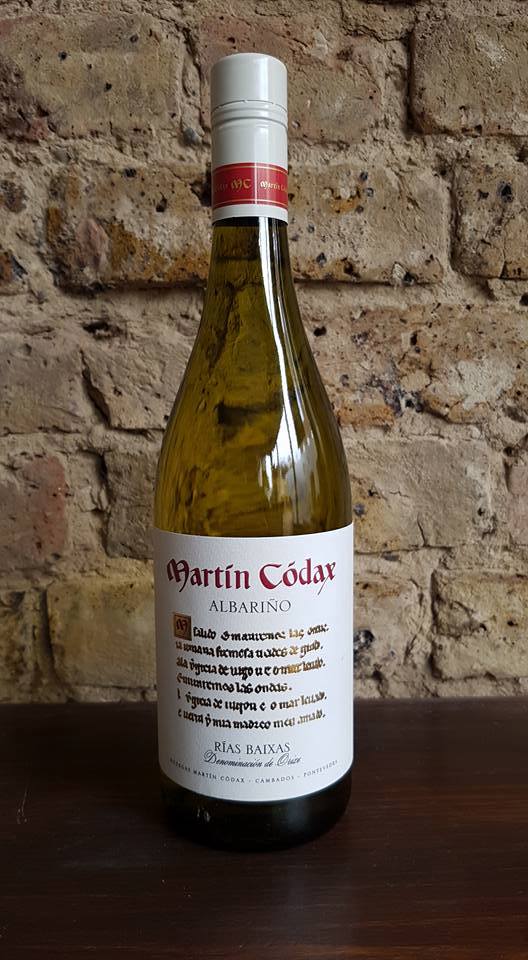
The nose is dominated by citrus and stone fruit notes accompanied by subtle nuances of white flowers. The wine is fresh, long, persistent and well-balanced on the palate.
Albariño is for sure one of the most distinctive white wine grapes in Spain. The best examples such as this one come from its heartland Rias Baixas in the north-western region of Galicia.
Here, Martín Códax, a modern and dynamic co-operative, is the largest producer and an estate-grown Albariño specialist, conducting ongoing research into the variety. It was founded in 1986 by 50 families and has since grown to over 550 members. The co-operative was named Martín Códax after the medieval poet and minstrel who lived in Galicia.
The Salnés Valley, from where this particular Albariño come from, is particularly suited to the variety. The region sits five kilometres from the sea and benefits from its cooling influence at night, which ensures the fresh, pure aromatics are retained to balance the ripeness and weight derived from the warm days.
You can pair it very successfully with a large range of fish, shell-fish and seafood. Try it with a simply grilled fish such as seabass, squid or sardines.
Cheers !
- Details
- Written by Henry Conway
- Category: News
- Hits: 1472
An oldie for you all today. This one has been in the shop since we opened. Not a wine to suit every palate but for those that do find it enjoyable it stands out head and shoulders above the crowd.
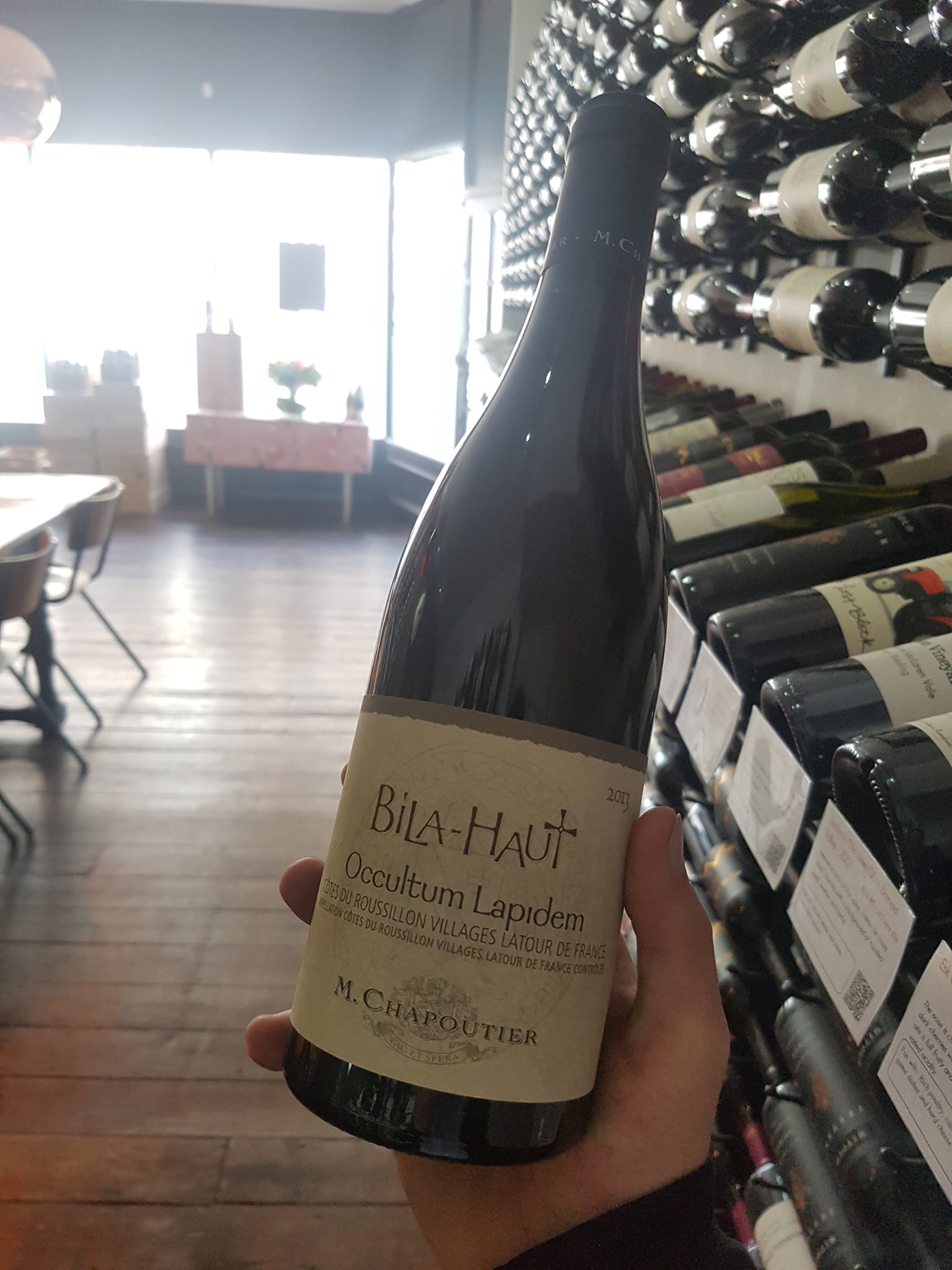
Bila-Haut "Latour de France" Occultum Lapidem 2013 @ £16.95
This full-bodied and strong wine is packed with lots of black fruits, pepper and liquorice. You can bet it will be a winner for the next 10 years at least. Just slightly spicy with a velvety side in the mouth and a nice persistent freshness. Convincing from the first sip and the rest of the bottle will tell you the same too.
Michel Chapoutier is part of a family that have been working in the Rhône valley since 1808. Michel, now in his forties, manages an exceptional Estate, a land rich in history and tradition. He decided to locate his domain Bila-Haut at Latour de France a village located in the north part of Roussillion under the appellation of Cotes de Roussillion village. The “Vignes de BILA-HAUT” and the “Domaine de Bila-Haut Occultum Lapidem” are the main expressions of this terroir. Long sunlight hours, low rainfall and particulary strong winds can produce concentrated wines. Three varieties of grapes grow on the land covered by Domaine de BILA-HAUT : Grenache grapes from 70 year old vines, grown on a magnificent plot in the heart of the ‘Garrigue’ scrubland. . Then Syrah grapes, ripened slowly on vines grown on clayey limestone soil giving powerful, silky-smooth tannins, And Carignan, for mineral wines with crispy tannic notes. The vineyard is located on Gneiss and schistous soils and limestone. This wine is half matured in vats and the other half is aged in casks according to the vintage.
Come and have a taste and remember that there is always a 15% discount on a case of 12 or more bottles, mixed or all the same.
Cheers!
- Details
- Written by Henry Conway
- Category: News
- Hits: 1553
Just for you lucky people we have just taken delivery of many more cases of a shop favourite, Il Passo! This gorgeous Italian red is so balanced that you'd be hard pressed to find something wrong with it at all!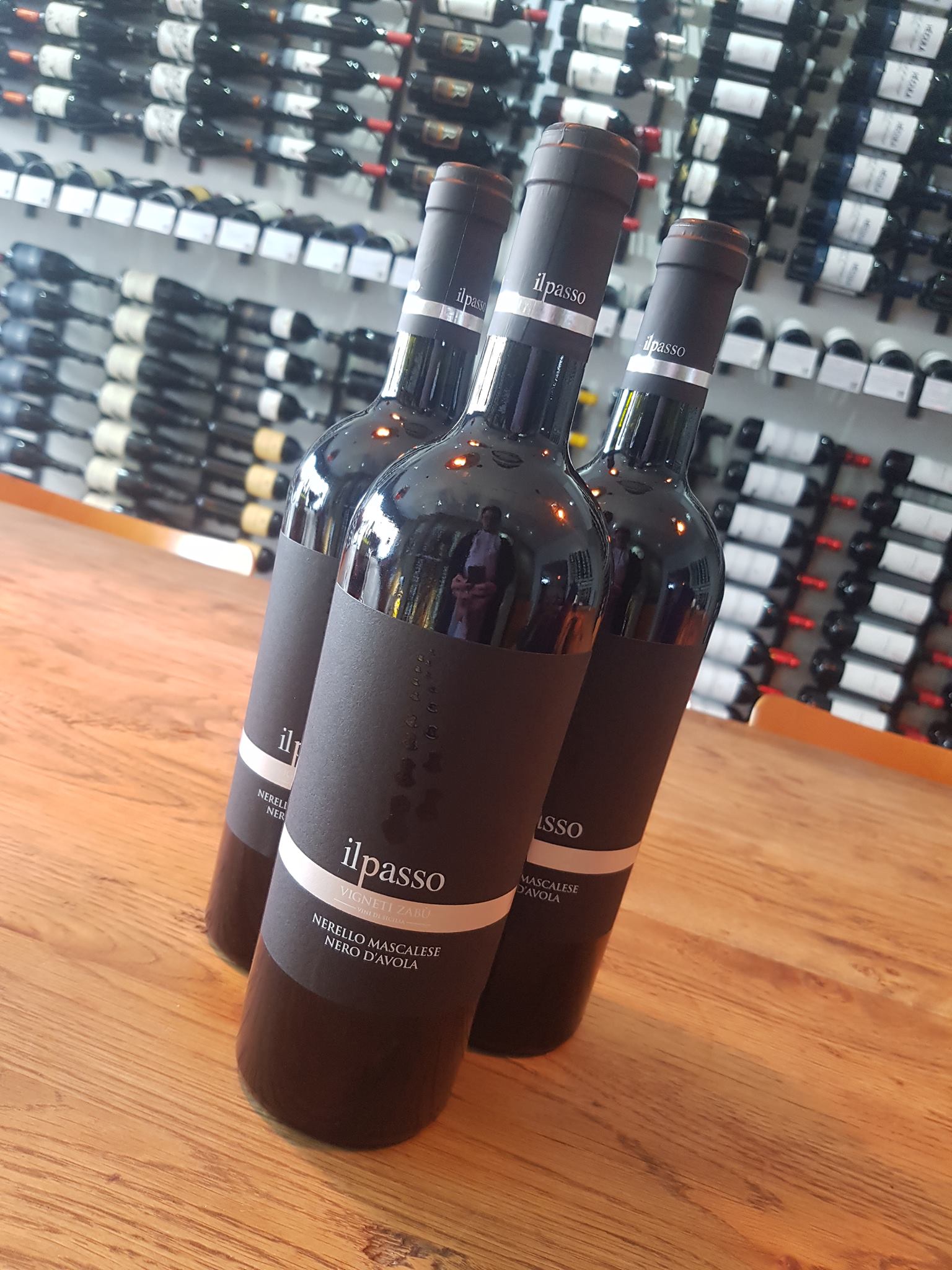
Vigneti Zabu "Il Passo" Sicily IGT 2015 @ £12.95
Bright red ruby in the glass with intense aromas of red fruits, spices and red flowers. The wine is vibrant, full and intense with a bright red fruit character. Warm, with a silky texture, it is well-balanced with a persistent finish.
The vineyards for Vigneti Zabù were planted in 2005 on the hills around Lake Arancio in Sambuca di Sicilia in southwestern Sicily. The uncontaminated area of Sambuca di Sicilia is a rich land with ancient vineyards. Lake Arancio, with its crystal-clear water, creates a perfect microclimate for viticulture.
If you've never tried it then come and have a taste, you won't be disappointed!
Cheers!
- Details
- Written by Henry Conway
- Category: News
- Hits: 1478
They are finally here! After a long wait we have English wines back in the shop! This time we have more than just a sparkling wine. We have a rosé, a white and a different sparkling wine!
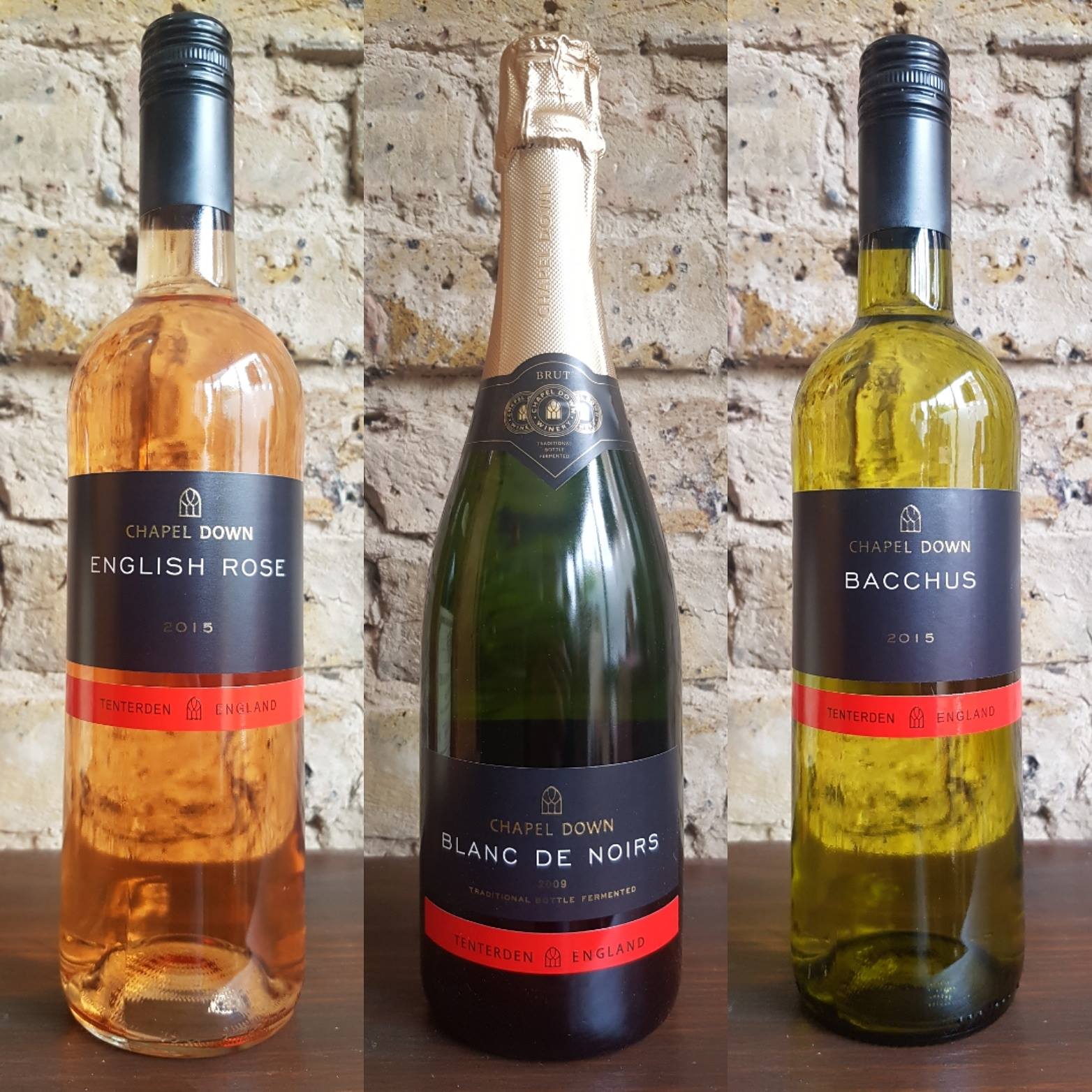
Chapel Down English Rosé 2015 @ £12.95
From vineyards around Tenterden and Aylesford in Kent, where the temperate climate allows growth of the delicate Pinot Noir, alongside some hardier varieties that shrug off England's cooler days, to produce a vibrantly fruity wine. Dry and refreshing, and packed with English summer fruit character. Strawberry and redcurrant characters take centre stage, with crispy acidity providing a mouth-watering lift. Superb barbecue wine, especially if you're having prawns and rice salads.
Chapel Down Bacchus 2015 @ £12.95
Fresh, crisp and citrussy English white made from Bacchus. The Bacchus grape, named after the Roman God of wine, produces a fresh and crisp wine with excellent citrus fruit characters and a refreshing finish. Very fresh and grassy and ideal with fish and salads.
Chapel Down Black de Noirs 2009 @ £28.95
A rich sparkling wine made from Pinot Noir with aromas of ripe strawberries and cherries together with hints of brioche from extended ageing on lees. This one easily lives up to the quality of the french Champagne masters.
Come and give us a visit and grab a bottle if you've never tried English wine before, you really are missing out.
Cheers!
- Details
- Written by Henry Conway
- Category: News
- Hits: 1756
Graham’s Port owner buys vineyard outside of Douro
Port and table wine producer Symington Family Estates has ventured outside the Douro Valley with the purchase of a wine estate in the Alto Alentejo area of southern Portugal.
The 207-hectare property includes 43ha of mature vineyard at an altitude of 490-550m in the São Mamede National Park, the highest mountain range in the south of Portugal, Symington said today.
Described as having well-drained soils that are a mix of schist and granite, the vineyard is located in Portalegre, one of the Alentejo’s smallest wine regions, with 841ha of vineyards and a strong influence from the Serra de São Mamede mountain range.
The acquisition is the culmination of a lengthy search by the Symingtons for a suitable vineyard in the Alentejo, with the family ‘increasingly drawn’ by the area’s soils, temperate climate and increasing wine quality.
The Symingtons will start from scratch, making all the wines themselves, and elected not to buy any of the remaining stocks of the estate, previously known as Altas Quintas. ‘After 135 years in the Douro our family felt that the time was right to make wine in another great Portuguese region,’ said Rupert Symington.
‘We love the Alto Alentejo and especially the location of this vineyard. We plan to make some exciting and interesting wines here.’ Financial details were not disclosed. For context, estate agency website Green-Acres was this week listing a 10-hectare ‘wine farm’ for sale in Portalegre, in northern Alentejo, for 1.2 million euros.
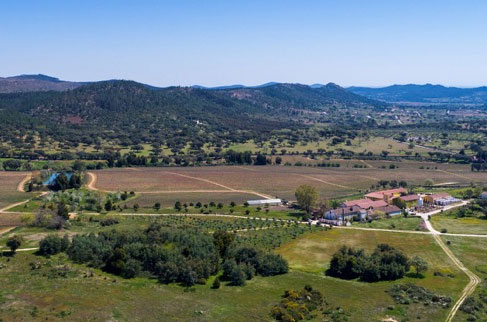
Winery investor Charles Banks faces fraud fallout
Charles Banks, prolific winery investor and partial owner of Napa Valley’s Mayacamas Vineyards, has indicated that he will plead guilty to one count of federal wire fraud, raising more doubts about his ability to maintain his current involvement in wine. Reporting by Gretchen Greer, Chris Mercer and William Kelley.
It emerged last week that Charles Banks has decided to plead guilty to one count of wire fraud in a case to be heard in San Antonio, Texas, which carries a maximum prison sentence of 20 years. The case was set to be heard on 27 June, reported Napa Valley Register.
Banks was indicted in San Antonio on two counts of fraud in September 2016, after retired San Antonio Spur Tim Duncan claimed that Banks, his longtime financial adviser, had persuaded him to invest over $13 million in Gameday Entertainment, a sport merchandise company partially owned by Banks. Duncan said that he had yet to see any return on his investment.
Banks initially strongly denied any wrongdoing. However, last week, his lawyer indicated that he would plead guilty to one of the counts of fraud. Banks’ case is not directly related to any of the wineries that he has invested in via Terroir Capital, a fund that he founded, but a guilty plea could have repercussions for his role in wine.
Terroir Capital announced that Banks would be ‘stepping back’ as CEO of its Terroir Life winery fund. Chief operating officer Kevin McGee has been promoted to chief executive officer. The fund has said that it will continue operations as normal and is not involved in the Duncan case.
But it emerged that the group faces uncertainty in New Zealand, where it owns Trinity Hill winery in Hawke’s Bay.
New Zealand’s Overseas Investment Office (OIO) said that, in light of Banks’ guilty plea, it would re-consider whether he passed its ‘good character’ test for foreign investors.
It said, ‘The OIO has met with Terroir Winery Fund’s representatives to make it clear that in our view Mr Banks is unlikely to meet his on-going obligation to remain of good character. If Mr Banks is not of good character, then we will seek to have him removed as an individual with control of sensitive land in New Zealand.’ The OIO praised Terroir for voluntarily reporting the issue.
Banks became a key player in wine after purchasing a stake in Napa Valley’s Screaming Eagle in 2006. Upon leaving the cult winery in 2009, he founded Terroir Capital and has since invested in Wind Gap and Qupé wineries in California. Banks is also believed to personally own half of Napa Valley’s historic Mayacamas Vineyards, which is part of a joint-venture with members of the Schottenstein family.
Tasting wine stimulates your brain more than maths, says neuroscientist
Tasting wine engages more of our brain than any other human behaviour, according to the findings of a leading neuroscientist in the US.
From the first sight of the wine bottle to manipulating the wine in your mouth and then swallowing it, there is a ‘tremendous range of sensory, motor and central brain systems involved in a wine tasting’, says Yale neuroscientist Gordon Shepherd.
Taken all together, these processes involve more brain activity than listening to music or solving a complicated maths problem, he argues in his book, Neuroenology: How the Brain Creates the Taste of Wine.
The book explores all of the many complicated neural processes involved in tasting and appreciating wine, including the visual assessment of the bottle and the wine in the glass, and the interplay between the liquid, oxygen and saliva in the mouth – involving complex movements of jaw, tongue, diaphragm and throat.
Molecules in the wine stimulate thousands of taste and odour receptors, according to a report on Shepherd’s book on the NPR website, ‘sending a flavour signal to the brain that triggers massive cognitive computation involving pattern recognition, memory, value judgement, emotion and pleasure’.
Unlike a maths problem – which requires a limited amount of brain activity – assessing wine engages multiple sensory systems, including seeing, smelling and tasting.
Shepherd’s findings come after a study was reported last September in the Frontiers in Human Neuroscience journal, arguing that Master Sommeliers require so much mental agility to make the grade that the sensory part of their brains becomes physically thicker.
